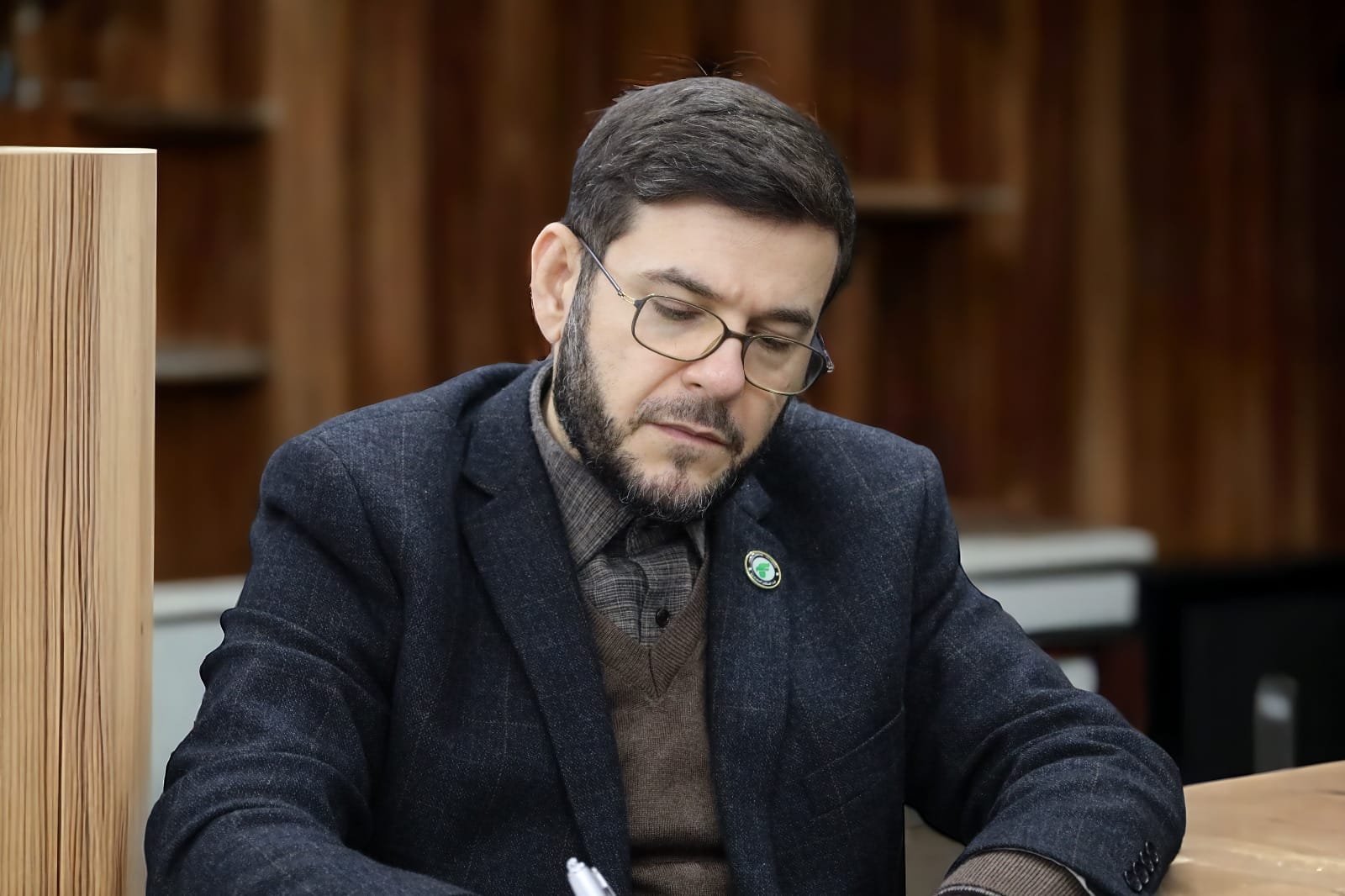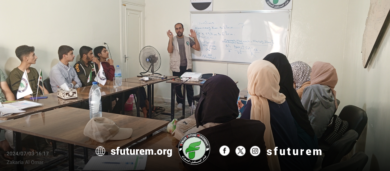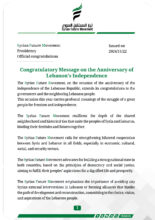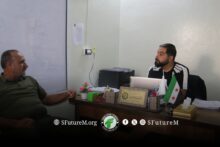Protecting the Gains of Liberation Through Political Pluralism

Introduction:
Historically, many nations have witnessed revolutions against oppressive rulers, with these uprisings aiming to achieve transitional justice and rebuild societies on democratic foundations. Transitional justice refers to a set of measures and mechanisms used to address the legacy of human rights violations committed under dictatorial regimes or during armed conflicts. These measures seek to ensure accountability, redress harm, and uncover the truth, thereby contributing to the establishment of a society based on the rule of law and respect for human rights.
One of the most prominent examples of successful transitional justice is South Africa’s experience following the end of apartheid. South Africa established the Truth and Reconciliation Commission, which helped uncover the truths about past violations, hold perpetrators accountable, and compensate victims. This process contributed to achieving national reconciliation and building a more just and stable society.
In Latin America, countries like Argentina and Chile experienced successful transitional justice efforts after the fall of dictatorial regimes. In Argentina, those responsible for gross human rights violations were prosecuted, which helped foster trust between citizens and state institutions.
Transitional justice requires integrated efforts, including legal and institutional reforms, the strengthening of civil society, and commemorating the victims. These efforts aim to prevent the recurrence of violations and build a sustainable future based on justice and equality.
At the Syrian Future Movement, we believe the safest path to achieving transitional justice lies in involving all Syrians in the process. This prevents retaliatory vengeance, behavioral deviations, and the loss of the gains of liberation. Therefore, we see the most prudent path as empowering the principle of political and party pluralism—a healthy approach that ensures the optimal realization of transitional justice and the building of a strong and free new Syria.
On Political Pluralism:
Establishing political pluralism after the success of popular revolutions against dictatorial regimes is a decisive step to ensure the prevention of dictatorship’s return and achieve lasting political stability. Political pluralism entails the existence of multiple political parties competing freely and fairly for power, which enhances democracy and ensures the representation of diverse opinions and perspectives within society.
The Need for Political Pluralism Becomes Apparent Through:
- Enhancing Democracy: Political pluralism allows citizens to freely choose their representatives, reinforcing the principle of popular sovereignty and ensuring that the government reflects the will of the people.
- Preventing Political Monopoly: The existence of multiple parties prevents any single party from monopolizing power, reducing the risk of a return to dictatorship.
- Encouraging Dialogue and Consensus: Political pluralism fosters dialogue among various political forces, contributing to national consensus on critical issues.
- Strengthening Oversight and Accountability: Opposition parties play a crucial role in monitoring government performance and holding it accountable, promoting transparency and reducing corruption.
Among the experiences worth highlighting for learning from their successes or failures is the Algerian experience. Following the events of October 1988, Algeria transitioned from a single-party system to political pluralism under the 1989 Constitution. This shift contributed to enhancing democracy and achieving significant political and economic reforms. However, Algeria’s subsequent challenges provide valuable lessons on the failure to sustain this system.
Another notable experience is that of South Africa. After the end of the apartheid regime, political pluralism played a crucial role in building a strong democratic system. Various parties contributed to achieving national reconciliation and rebuilding society.
The Importance of Political Pluralism:
Political pluralism is a fundamental element in building a healthy and sustainable democratic system. It holds significant importance from political, social, philosophical, and pragmatic perspectives:
- A. Political Importance:
- Enhancing Democracy: Political pluralism enables citizens to freely choose their representatives, strengthening the principle of popular sovereignty and ensuring that the government reflects the will of the people. It also prevents the monopolization of power by a single party, reducing the risk of a return to dictatorship.
- Encouraging Dialogue and Consensus: The presence of multiple political parties fosters dialogue among different political forces, contributing to national consensus on significant issues. Such consensus is essential to achieving political stability and cooperation.
- Strengthening Oversight and Accountability: Opposition parties play a crucial role in monitoring and holding the government accountable, as mentioned earlier. This oversight promotes transparency and minimizes corruption, ensuring that the government serves the interests of the people rather than its own.
- B. Social Importance:
- Representing Social Diversity: Political pluralism reflects the social and cultural diversity within a society, allowing individuals from different backgrounds to express their political opinions and perspectives. This representation strengthens a sense of belonging and active participation in public life.
- Enhancing Civic Engagement: Political parties mobilize the masses and encourage citizens to take part in the political process, whether through voting or participating in party activities. This engagement raises political awareness and contributes to the development of a robust civil society.
- Achieving Social Justice: Through competition among political parties, policies and programs are introduced to promote social justice and improve citizens’ living conditions. This competition pushes parties to propose effective solutions to social challenges.
- C. Philosophical Importance:
- Embodying Individual Freedom: Political pluralism represents the respect for individuals’ freedom to choose their political orientations and express their views. This respect reflects the philosophical values of democracy and liberty.
- Promoting Critical Thinking: Pluralism allows individuals to engage with diverse opinions and ideas, fostering critical thinking and encouraging independent thought. This intellectual diversity is crucial for the development and progress of society.
- Balancing Power and Freedom: Political pluralism helps achieve a balance between authority and freedom by ensuring that power is not concentrated in a single hand, while also enabling individuals to fully exercise their political freedoms.
- D. Pragmatic Importance:
- Achieving Sustainable Development: Political pluralism contributes to sustainable development by proposing policies and programs aimed at improving the economy and promoting social justice. The competition among parties encourages them to present innovative and effective solutions.
- Promoting Political Stability: A pluralistic system ensures political stability by allowing power to be transferred peacefully and systematically. This stability is essential for attracting investments and fostering economic growth.
- Serving the Public Interest: Political pluralism ensures that government policies reflect the interests of various social groups, enhancing trust between citizens and the government while serving the greater public interest.
Therefore, we emphasize that there are many references that have addressed the issue of political pluralism, such as the book Democracy and Political Pluralism by John Stuart Mill. In this book, he discusses the importance of political pluralism in enhancing democracy and achieving a balance between power and freedom.
In addition, there is the book Parties and Party Systems by the Italian author Giovanni Sartori. This book offers an in-depth analysis of the role of political parties in a democratic system and highlights the significance of political pluralism in achieving political stability.
Challenges of Political Pluralism in Syria:
After the fall of the Assad regime, Syria faces numerous challenges in establishing political pluralism. These challenges span political, social, security, and economic aspects and require integrated efforts to overcome:
- A. Political Challenges:
- Rebuilding the Political System: After years of authoritarian rule, Syria needs to reconstruct a democratic political system that includes all political factions. This requires drafting a new constitution that guarantees everyone’s rights and strengthens party pluralism.
- National Reconciliation: Achieving unity among various political forces and social components is crucial to prevent internal divisions and conflicts. This necessitates a comprehensive national dialogue that includes all parties involved.
- Managing the Transitional Phase: Forming a transitional government that represents all groups and organizes free and fair elections is a significant challenge. This government must be capable of effectively managing the country during this critical period.
- B. Social Challenges:
- Rebuilding Trust: After years of oppression and violence, Syria needs to restore trust between citizens and state institutions. This requires significant efforts in transitional justice and national reconciliation.
- Social Diversity: Syria is a diverse society in terms of religions, sects, and ethnicities. Achieving peaceful coexistence among these components necessitates comprehensive policies that promote national unity and respect diversity.
- Supporting Civil Society: Strengthening the role of civil society organizations and NGOs in the rebuilding and reconciliation process is crucial for achieving social stability.
- C. Security Challenges:
- Maintaining Security: After the regime’s fall, Syria may face significant challenges in maintaining security and preventing chaos. This requires restructuring security and police forces and ensuring that the state holds a monopoly on weapons.
- Combating Terrorism: Eliminating terrorist groups that exploited the chaos for their own gains is a major security challenge. A comprehensive strategy to combat terrorism and strengthen internal security is essential.
- Restructuring the Army: Rebuilding the army as a national, depoliticized institution capable of protecting the country from internal and external threats is a crucial challenge for achieving security stability.
- D. Economic Challenges:
- Rebuilding Infrastructure: After years of war, Syria requires extensive efforts to rebuild its destroyed infrastructure. This necessitates significant investments and international cooperation.
- Achieving Sustainable Development: Developing economic policies that promote sustainable growth and provide job opportunities for citizens is a major challenge. These policies should be comprehensive and address all regions and social groups.
- Combating Corruption: Eliminating the corruption that flourished during years of dictatorship is crucial for economic development. Effective mechanisms must be established to combat corruption, promote transparency, and ensure accountability.
- E. Legal Challenges:
- Transitional Justice: Ensuring justice for victims and holding perpetrators of human rights violations accountable is essential for building a state of law. Effective mechanisms must be in place to achieve transitional justice.
- Judicial System Reform: Reconstructing the judiciary to be independent, impartial, and capable of delivering justice is another significant challenge. Comprehensive reforms are necessary in this area.
- Protecting Human Rights: Implementing policies and laws that ensure respect and protection for human rights is crucial for establishing legal and political stability.
- F. Cultural Challenges:
- Promoting Democratic Culture: Raising awareness among citizens about the importance of democracy and political pluralism is essential for political stability. Educational and awareness programs should be established in this area.
- Respecting Cultural Diversity: Fostering respect for cultural and religious diversity within society is vital for peaceful coexistence. Policies must be in place to encourage this respect and prevent discrimination.
- Supporting Arts and Creativity: Supporting the arts and creativity serves as a means to strengthen national unity and express cultural identity, which is crucial for maintaining cultural stability.
Methodical Solutions:
To achieve a healthy political pluralism in Syria after the fall of the dictatorial regime, a comprehensive approach must be adopted to address political, social, security, economic, legal, and cultural challenges. The most crucial solutions include:
- A. Political Solutions:
- Drafting a New Constitution: A new constitution must be drafted to guarantee the rights of all citizens and strengthen party pluralism, including clear mechanisms for organizing elections and ensuring their integrity.
- Forming an Inclusive Transitional Government: After the formation of a temporary transitional government (or a caretaker government), it is essential to consult with representatives from all political and social groups to pave the way for organizing free and fair elections.
- Strengthening National Dialogue: National dialogue channels must be opened, including all political and social parties, to achieve consensus on key issues and build a shared future.
- B. Social Solutions:
- Rebuilding Trust: Transitional justice and national reconciliation programs must be implemented to restore trust between citizens and state institutions.
- Strengthening Civil Society’s Role: Support and encourage civil society organizations to actively participate in the rebuilding and reconciliation process.
- Education and Awareness: Raise awareness about the importance of democracy and political pluralism through educational and awareness programs.
- C. Security Solutions:
- Restructuring Security Forces: Dissolve and then restructure security forces to become non-partisan national institutions that protect citizens and ensure internal security.
- Combating Terrorism: Develop a comprehensive strategy to combat terrorism and strengthen internal security, with a clear Syrian national definition of terrorism.
- Controlling Weapons: Collect illegal weapons from civilians and ensure that the state has a monopoly on arms within its designated institutions.
- D. Economic Solutions:
- Rebuilding Infrastructure: Implement programs to reconstruct damaged infrastructure in collaboration with the international community.
- Achieving Sustainable Development: Develop economic policies that promote sustainable development and provide job opportunities for citizens.
- Combating Corruption: Establish effective mechanisms to fight corruption, enhance transparency, and ensure accountability.
- E. Legal Solutions:
- Achieving Transitional Justice: Establish mechanisms to achieve transitional justice and hold those responsible for all violations accountable.
- Judicial System Reform: Reconstruct the judicial system to be independent, impartial, and capable of delivering justice.
- Ensuring Human Rights: Develop policies and laws that guarantee the respect and protection of human rights.
- F. Cultural Solutions:
- Promoting Democratic Culture: Raise awareness about the importance of democracy and political pluralism through educational and awareness programs.
- Respecting Cultural Diversity: Promote respect for cultural and religious diversity in society through comprehensive policies.
- Supporting Arts and Creativity: Support arts and creativity as a means to strengthen national unity and express cultural identity.
Conclusion:
Political pluralism is a fundamental element for the full success of the Syrian revolution and the establishment of a strong and sustainable new state. Establishing political pluralism ensures the representation of all social and political factions, strengthens democracy, prevents the return of dictatorship, promotes national dialogue, rebuilds trust, and supports civil society. This way, Syria can overcome the political, social, security, and economic challenges it faces.
Additionally, restructuring security forces, combating corruption, and ensuring human rights are vital steps to achieve stability and sustainable development. Continuous efforts are also needed to promote a democratic culture and respect cultural and religious diversity within society.
At the Syrian Future Movement, we believe that adopting these recommendations and solutions will enable Syria to build a bright future that reflects the aspirations of its people for freedom, justice, and equality. It will achieve sustainable development that ensures the well-being of all citizens. Political pluralism is not just a political goal but a foundation for building a cohesive and progressive society capable of facing challenges and realizing the ambitions of its people.
To enable full political pluralism in Syria after the fall of the Assad regime, the new administration must take specific constitutional and legal steps to guarantee an inclusive and democratic political environment.
At the Syrian Future Movement’s Political Office, we recommend the following practical steps:
- A. Constitutional Steps:
- Drafting a New Constitution: Establish a new constitution or a temporary constitutional declaration as a foundation for drafting a permanent constitution, ensuring the rights of all citizens and promoting political pluralism.
- Separation of Powers: Guarantee the independence of the legislative, executive, and judicial branches.
- Human Rights: Include fundamental human rights and ensure their protection in all legal and constitutional frameworks.
- Electoral Mechanisms: Develop clear and transparent mechanisms for organizing elections, with provisions to ensure integrity, fairness, and impartiality.
- Public Referendum: Conduct a public referendum on the new constitution to ensure acceptance and support from all social and political groups.
- Freedom to Establish Political Parties: Guarantee the right of all citizens to freely establish and register political parties without obstacles.
- Equal Opportunities for Elections: Ensure that all political parties have equal opportunities to participate in elections and secure fair representation and competition.
- B. Legal Steps:
- Issuing Political Party Laws: Enacting laws that regulate the formation of political parties and ensure their freedom of establishment and activity, while implementing safeguards to prevent discrimination and violence.
- Election Laws: Issuing laws that regulate the electoral process, including:
- Establishing Candidacy Standards: Setting clear criteria for running for electoral positions.
- Ensuring Transparency: Implementing mechanisms to ensure the transparency of the electoral process and prevent fraud.
- Election Monitoring: Inviting international and local organizations to monitor the elections and ensure their integrity.
- Judicial System Reform: Rebuilding the judicial system to be independent and fair, capable of protecting citizens’ rights and enforcing laws justly.
- C. Executive Steps:
- Establishing an Independent Electoral Commission: Creating an independent body to oversee the organization of elections and ensure their integrity.
- Strengthening Civil Society’s Role: Supporting civil society organizations and encouraging their participation in monitoring the electoral process and promoting political awareness.
- Awareness and Education: Implementing educational and awareness programs to enhance democratic culture and political pluralism among citizens.
Presidency office
Dr. Zaher Baadarani
Research and Studies Division
Studies
Syrian Future Movement
References:
- ما هي الحلول المقترحة لتحقيق التعددية السياسية في الدولة.
- تحدّيات سورية ما بعد الأسد – حرية برس Horrya press.
- سورية ما بعد الأسد: مهمة إقامة دولة جامعة وسط تحديات كبيرة.
- سوريا بعد سقوط الأسد: تحديات الداخل والخارج | مركز الجزيرة للدراسات.
- التعددية السياسية وعلاقتها بالتعددية الحزبية | ASJP.
- ما المقصود بالتعددية الحزبية كإحدى أصناف الأنظمة الحزبية التنافسية؟.
- قراءة في دور الأحزاب في تفعيل الديمقراطية.
- لمحة عن العدالة الانتقالية وحقوق الإنسان | OHCHR.
- العدالة الانتقالية، المصطلح، الأهداف وآليات التطبيق.
- العدالة الإنتقالية والمصالحة الوطنية .. من ضرورات التحول الديمقراطي ….
- تجارب عدد من الدول في مجال العدالة الانتقالية.






